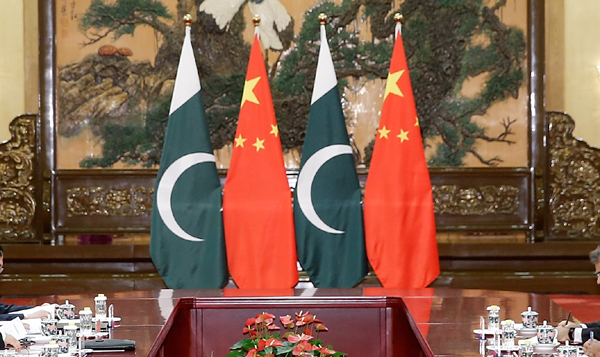By Furqan Rao
Though terrorism has been affecting Pakistan since last two decades, one thing that might have even worse consequences for the national development are racial, ethnic and regional biases. Some immature politicians are adding to the fuel as they are giving an ethnic colour to every issue, most of the time illogically, just to appease their so-called vote bank. Having sacrificed thousands of the lives, Pakistan is now gradually coming out of the quagmire of the terrorism and extremism thanks to the national political consensus to launch the National Action Plan.
The improving security situation is attracting foreign investors to Pakistan who, besides exploiting country’s market potential, also desire to benefit the ideal strategic location of Pakistan. China has taken the lead to cash in on its exemplary friendship with Pakistan by announcing a $46 billion package to build China-Pakistan Economic Corridor including a mix of energy and infrastructure projects across the region. But instead of perceiving CPEC’s long-term impacts on the national economy, the political parties started politicking the project misunderstanding as it would only benefit Punjab province.
Despite having failed to improve the law and order situation in their respective provinces, the regional parties wanted to benefit the foreign investment without ensuring the pre-requisites with secure environment at top. The peace in Khyber Pakhtunkhwa and Balochistan had been most volatile since decades. Pakhtunkhwa’s area along the Afghan border had been under clutches of Taliban groups. Active involvement of Indian spy agencies in Balochistan had also been no secret to law enforcement agencies as well as the politicians.
But even then, the political parties based or ruling in these provinces desire the major portion of the CPEC pass through their provinces. The Punjab-specific prejudices of other provinces are one of the major reasons behind the opposition fearing that the Pakistan Muslim League-N which also rules in Punjab, may detour the CPEC to take maximum advantage usurping the rights of others. Country’s intelligentsia had been urging the politicians to evolve consensus on CPEC for the timely completion of this project.
In longer term, the CPEC would benefit the whole country which includes all provinces. All national and regional political leaders must think about the overall development of Pakistan instead of dividing themselves into Punjabi, Sindhi, Pashtun or Bloch. There is a firm opinion by some intellectuals that if the politicians continued impeding the project, CPEC could prove to be another Kalabagh Dam; a 3,600 megawatt project that fell prey to the biases of provincial parties just short before launch.
The dissenting politicians have failed to realise that they would lose this unique opportunity if they failed to do away with the differences. They must acknowledge that it was only China that agreed to make a huge investment in security-sensitive Pakistan. Even, the United States has not taken any step despite the fact that Pakistan had been its close ally in war against terrorism and the super power limited its role just to offer assistance packages for Pakistan.
US Congress had passed the Kerry-Lugar Act of 2009 for giving $7.5 billion civilian assistance package to Pakistan. But out of which Pakistan received over $3.8 billion against the total obligation of $7.5 billion. Jamiat Ulema-e-Islam-F, having presence in both Pakhtunkhwa and Punjab provinces views that CPEC will help improve law and order situation and country’s economic growth. It said the western route would be the shortest and cost effective route for China as well. Pakhtunkhwa-based Qaumi Wattan Party (QWP) believes that CPEC can usher in a new era of prosperity for the people of Pakistan. However, in order to give effect to this mega project, it is imperative that all federating units of the country are treated at par without any discrimination.
In the recent past, the government had convened all parties’ conference to address the reservations of the political parties on CPEC. Leader of Opposition in National Assembly Khursheed Shah has now urged the government to adhere to the decisions reached at the APC. He observes that if eastern route is given province to western route, it would create resentment between Punjab and ‘smaller’ provinces. Thus, whosesoever the CPEC pass through, country’s political elite must exercise patience and foresee the positive impacts of the multi-billion dollar projects on country’s social and economic outlook in future.
The politicians should believe that this is not the last foreign investment rather it would set a precedent and attract other regional powers to take advantage of Pakistan’s strategically located market and its sea ports. The benefits of the foreign investment cannot be confined to merely a single province rather it would completely change the social fabric of the country by eliminating poverty, improving literacy and ultimately ridding the country of terrorism and extremism.
Furqan Rao is Islamabad-based journalist and former fellow of International Centre for Journalists (ICFJ).

